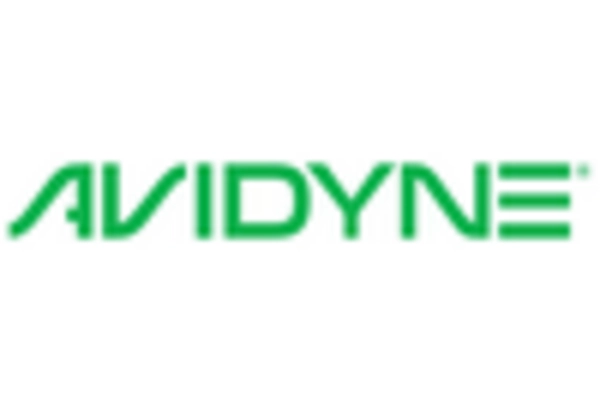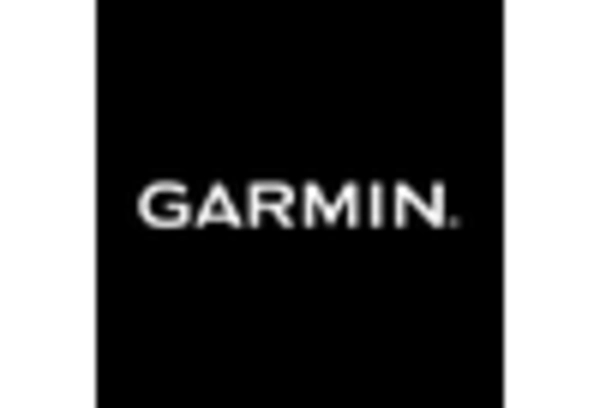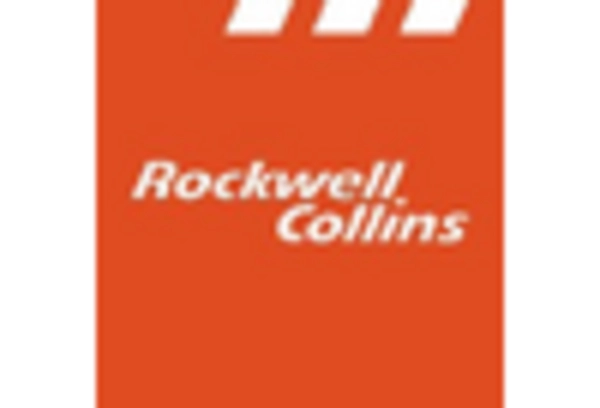Increasing Air Traffic Demand
The Aviation Beacons Technology Market is experiencing a surge in demand due to the increasing volume of air traffic. As more airlines expand their fleets and routes, the need for efficient navigation and safety systems becomes paramount. According to recent data, air traffic is projected to grow at a compound annual growth rate of approximately 4.5% over the next decade. This growth necessitates the deployment of advanced beacon technologies to ensure safe landings and takeoffs, particularly in congested airspaces. The integration of these technologies not only enhances safety but also improves operational efficiency, thereby driving the Aviation Beacons Technology Market forward. As a result, manufacturers are investing in innovative beacon solutions that can accommodate the rising demands of air traffic management.
Emerging Markets and Regional Expansion
Emerging markets are presenting new opportunities for the Aviation Beacons Technology Market. As economies develop and air travel becomes more accessible, there is a growing need for reliable navigation systems in these regions. Countries in Asia and Africa, in particular, are investing in their aviation infrastructure to support increasing air traffic. This expansion often includes the implementation of advanced beacon technologies to ensure safety and efficiency. The potential for growth in these markets is substantial, as governments and private entities recognize the importance of modern aviation systems. Consequently, the Aviation Beacons Technology Market is likely to see increased activity and investment in these regions, further driving its expansion.
Regulatory Compliance and Safety Standards
The Aviation Beacons Technology Market is heavily influenced by regulatory compliance and safety standards set by aviation authorities. Organizations such as the International Civil Aviation Organization (ICAO) and the Federal Aviation Administration (FAA) establish stringent guidelines that necessitate the use of advanced beacon technologies. Compliance with these regulations is not only mandatory but also critical for ensuring the safety of air travel. As regulations evolve to incorporate new technologies, the demand for modern beacon systems that meet these standards is likely to increase. This trend is expected to drive investments in the Aviation Beacons Technology Market, as stakeholders seek to enhance their operational capabilities while adhering to safety protocols.
Technological Advancements in Navigation Systems
Technological advancements are playing a crucial role in shaping the Aviation Beacons Technology Market. Innovations such as satellite-based navigation systems and enhanced signal processing capabilities are revolutionizing how aircraft are guided during flight. The introduction of Automatic Dependent Surveillance-Broadcast (ADS-B) technology has significantly improved situational awareness for pilots and air traffic controllers alike. This technology allows for real-time tracking of aircraft, which is essential for maintaining safety in increasingly busy airspaces. As these technologies continue to evolve, they are expected to drive further adoption of aviation beacons, thereby expanding the Aviation Beacons Technology Market. The ongoing research and development efforts in this sector indicate a promising future for advanced navigation solutions.
Growing Focus on Airport Infrastructure Development
The Aviation Beacons Technology Market is benefiting from a growing focus on airport infrastructure development. As countries invest in upgrading and expanding their airport facilities, the need for advanced navigation and safety systems becomes increasingly apparent. New airport projects often incorporate state-of-the-art beacon technologies to enhance operational efficiency and safety. For instance, the construction of new runways and terminals necessitates the installation of modern beacon systems to guide aircraft during takeoff and landing. This trend is expected to drive the Aviation Beacons Technology Market as airports strive to meet the demands of rising passenger traffic and improve overall service quality.















